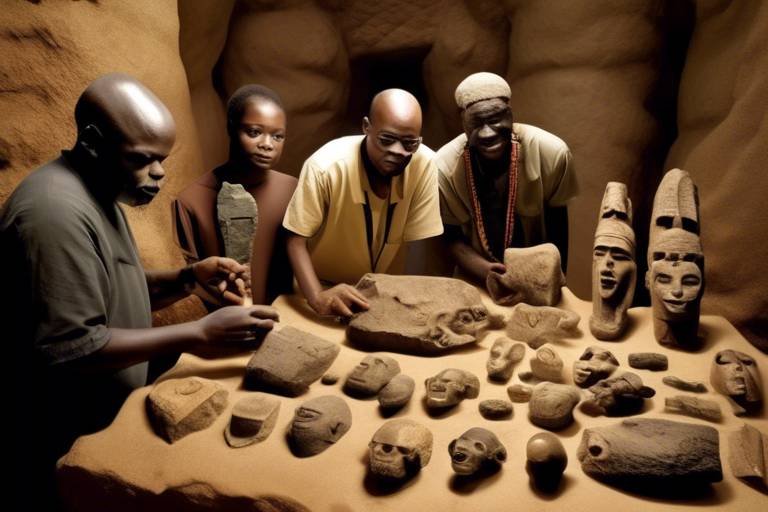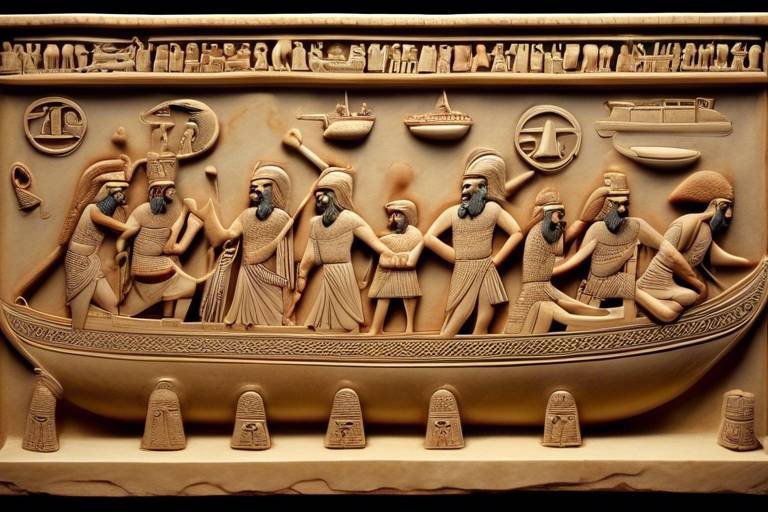The Secrets of Ancient Egyptian Philosophical Thought
Ancient Egyptian philosophical thought holds within it a treasure trove of mysteries waiting to be unveiled. From their profound beliefs in the afterlife to the intricate symbolism woven into their art and architecture, the ancient Egyptians left behind a legacy that continues to intrigue and inspire us today. Let's embark on a journey to explore the secrets of ancient Egyptian philosophical thought, delving into the core beliefs, symbolism, and influence that shaped their unique worldview.

Ancient Egyptian Beliefs and Values
The ancient Egyptian civilization has long fascinated scholars and enthusiasts alike with its rich tapestry of beliefs and values that underpinned their philosophical thought. In this article, we will delve into the mystical world of ancient Egyptian philosophy, exploring its core tenets, symbolism, influence on art and architecture, connection with religion, role of wisdom literature, legacy in modern times, comparative analysis with other traditions, and the enduring mysteries embedded within its texts.
Ancient Egyptians held a profound reverence for the afterlife, believing in the existence of an eternal soul that transcended physical death. Their intricate burial rituals and elaborate tombs reflected this belief in the continuity of life beyond the earthly realm. Central to their worldview was the concept of Ma'at, representing harmony, balance, and truth in the cosmic order. The Egyptians worshipped a pantheon of gods and goddesses, each embodying different aspects of nature and human experience. Their polytheistic beliefs intertwined with daily life, guiding moral conduct and social interactions.
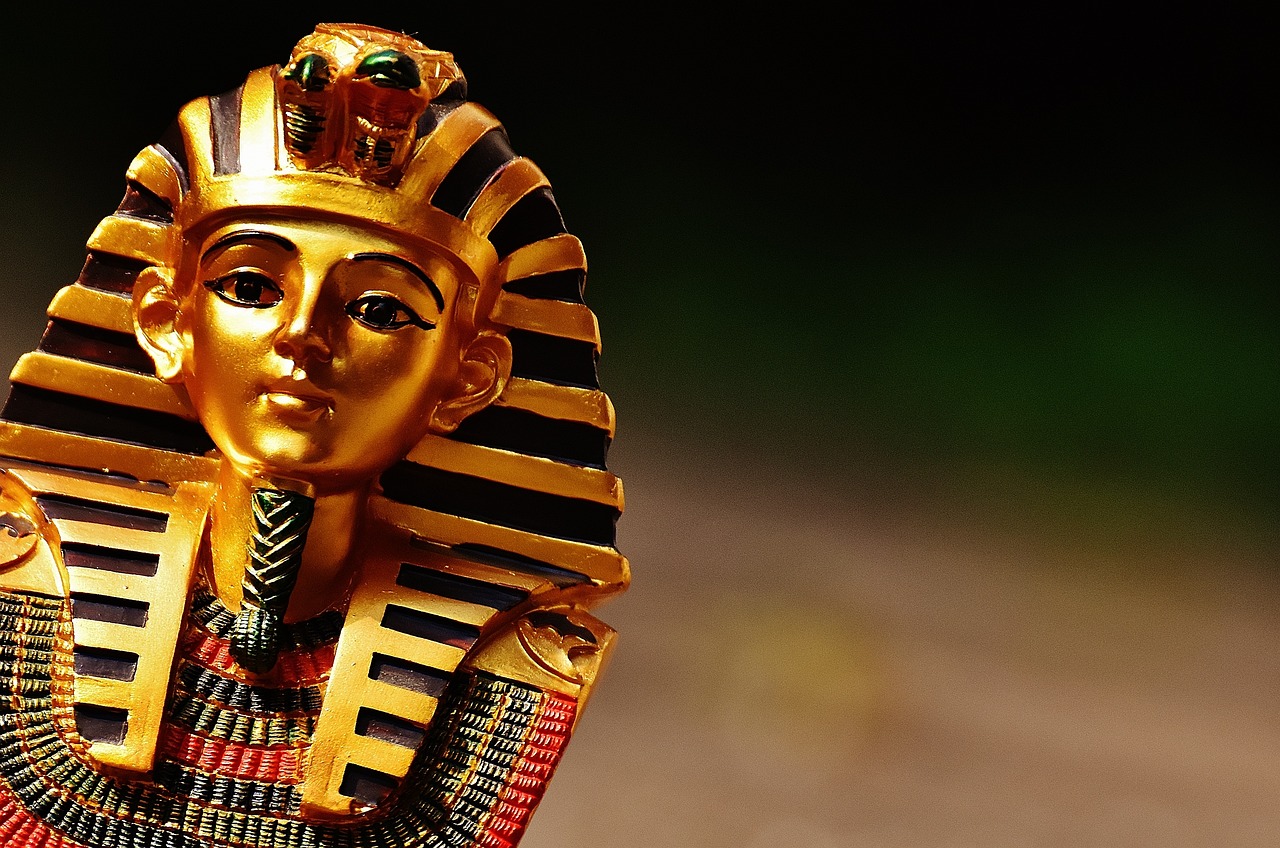
Symbolism in Egyptian Philosophy
Symbolism played a profound role in ancient Egyptian philosophy, serving as a powerful tool to convey complex ideas and beliefs. In Egyptian thought, symbols were not merely decorative elements but carriers of deep meaning, reflecting the interconnectedness of life, death, and the universe. One of the most prominent symbols in Egyptian philosophy was the Ankh, representing life and immortality. The Djed pillar symbolized stability and endurance, while the Eye of Horus embodied protection and healing. These symbols were not just artistic motifs but held significant philosophical implications, guiding individuals towards a deeper understanding of existence and the divine.

Philosophical Influence on Egyptian Art and Architecture
Ancient Egyptian art and architecture were not merely expressions of creativity and craftsmanship; they were profound reflections of the philosophical beliefs and values held by the civilization. The Egyptians saw art and architecture as vehicles for conveying spiritual and metaphysical ideas to the masses, transcending mere aesthetic appeal. Through intricate symbolism and meticulous design, Egyptian artists and architects imbued their creations with layers of meaning that resonated with the core tenets of their philosophical thought.
One of the central themes that permeated Egyptian art and architecture was the concept of Ma'at, representing order, balance, and harmony in the universe. This philosophical principle guided the construction of temples, pyramids, and tombs, where every element was meticulously arranged to reflect the cosmic order upheld by the gods. The intricate hieroglyphs, symbolic motifs, and precise alignments in Egyptian art and architecture served as visual manifestations of Ma'at, reinforcing the interconnectedness of all aspects of existence.
The philosophical influence on Egyptian art and architecture extended beyond mere symbolism; it shaped the very purpose and function of these creations. Temples were not just places of worship but were considered microcosms of the universe, designed to facilitate communication between the mortal and divine realms. The layout of temples, with their halls, sanctuaries, and sacred precincts, mirrored the cosmological beliefs of the Egyptians, emphasizing the eternal cycle of life, death, and rebirth.
Furthermore, Egyptian art and architecture were infused with religious symbolism that reflected the Egyptians' profound reverence for the gods and the afterlife. The colossal statues of pharaohs, the elaborate wall paintings in tombs, and the intricate burial rituals all served to convey the belief in immortality and the journey of the soul beyond death. These artistic expressions were not just aesthetic embellishments but were profound philosophical statements about the nature of existence and the transcendence of the human spirit.
In essence, the philosophical influence on Egyptian art and architecture was profound and multifaceted, transcending mere visual aesthetics to convey deeper truths about the nature of reality and the human experience. The legacy of Egyptian artistic and architectural achievements continues to inspire awe and fascination, serving as a testament to the enduring power of philosophical thought in shaping the cultural identity of a civilization.
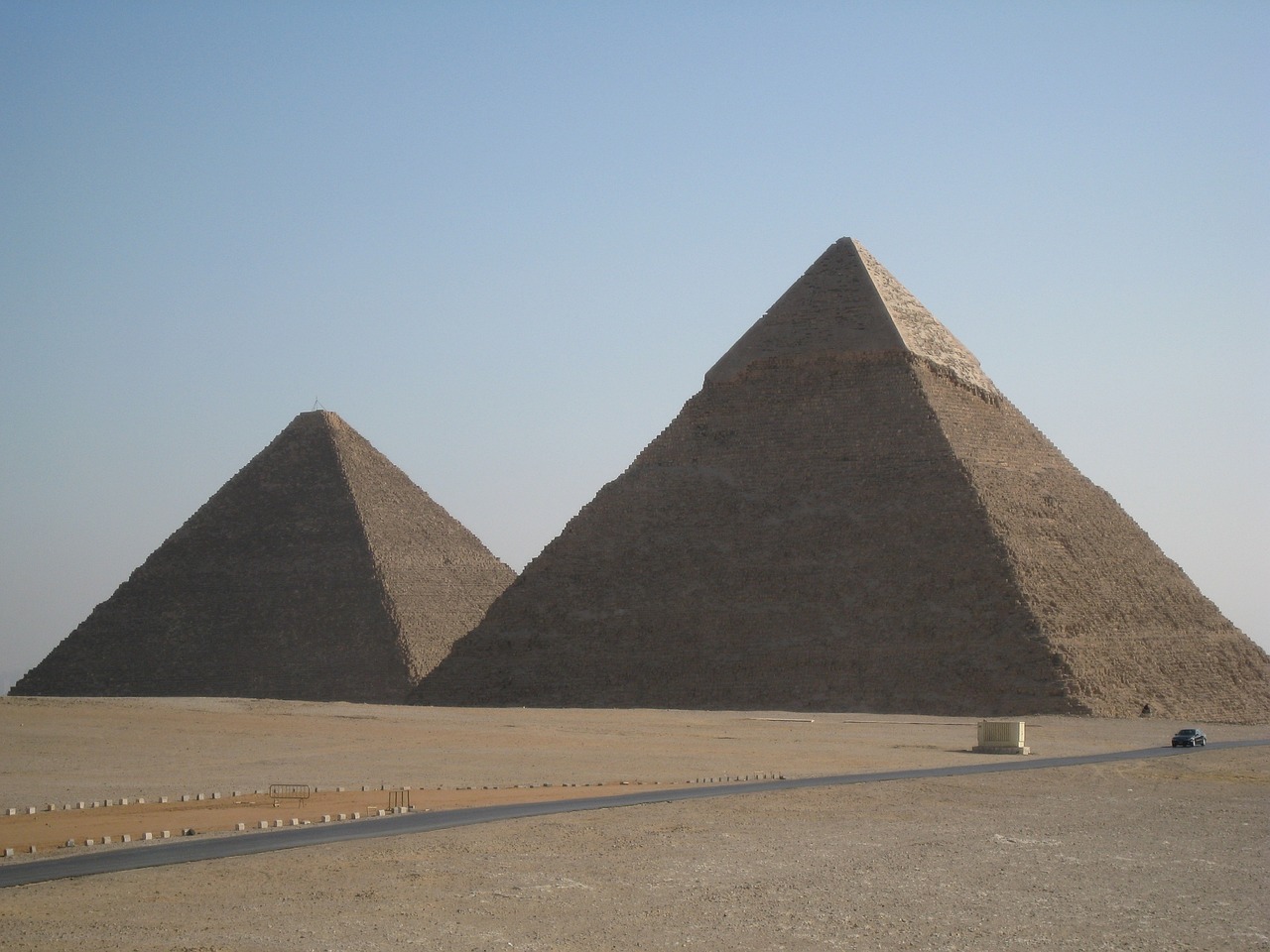
Connection Between Egyptian Philosophy and Religion
The is deeply intertwined, with philosophical thought heavily influenced by religious beliefs and practices in ancient Egypt. The Egyptians viewed their gods not only as deities to be worshipped but also as symbols of cosmic forces and principles that governed the universe. The concept of Ma'at, representing truth, balance, and order, was central to both Egyptian philosophy and religion, emphasizing the harmony and balance that needed to be maintained in the world.
Moreover, the Egyptian belief in the afterlife played a significant role in shaping their philosophical views on morality, ethics, and the nature of existence. The idea of the soul's journey after death, guided by rituals and religious practices, reflected the Egyptians' profound understanding of life's mysteries and the interconnectedness of the physical and spiritual realms.
Religious ceremonies, such as the rites performed in temples and tombs, were not only acts of worship but also expressions of philosophical concepts related to death, rebirth, and the eternal cycle of life. The symbolism found in religious texts, hieroglyphics, and temple decorations served as visual representations of philosophical ideas, conveying complex metaphysical concepts to the initiated.
Furthermore, the role of priests in ancient Egyptian society was crucial in bridging the gap between philosophy and religion, as they were the keepers of knowledge, wisdom, and spiritual teachings. Through their interpretations of religious texts and rituals, priests helped elucidate the deeper meanings behind the philosophical underpinnings of Egyptian belief systems.
In essence, Egyptian philosophy and religion were inseparable, with each influencing and enriching the other to create a holistic worldview that encompassed both the material and the spiritual dimensions of existence. The profound connection between the two realms underscored the Egyptians' quest for understanding the mysteries of the universe and their place within it.

Role of Wisdom Literature in Egyptian Philosophy
Exploring the role of wisdom literature in Egyptian philosophy unveils a rich tapestry of moral teachings, ethical guidelines, and profound insights into the nature of existence. Wisdom literature in ancient Egypt served as a beacon of enlightenment, guiding individuals on the path towards spiritual growth and intellectual enlightenment.
One of the most renowned examples of wisdom literature in Egyptian philosophy is the Instructions of Ptahhotep, a text attributed to the vizier Ptahhotep from the Fifth Dynasty. This ancient manuscript imparts timeless wisdom on the importance of humility, respect for elders, and the pursuit of knowledge. Through allegorical stories and practical advice, the Instructions of Ptahhotep encapsulates the essence of Egyptian philosophical thought.
Wisdom literature played a pivotal role in shaping the moral fabric of Egyptian society, emphasizing virtues such as truth, justice, and harmony. These teachings were not only meant for personal enrichment but also aimed to instill a sense of communal responsibility and social cohesion among the populace.
The Book of the Dead, another prominent example of wisdom literature in ancient Egypt, provided a guidebook for the deceased in the afterlife. This sacred text contained spells, incantations, and rituals to ensure a safe passage to the realm of the gods and eternal life. The philosophical underpinnings of the Book of the Dead reflected the Egyptians' profound beliefs in the cyclical nature of existence and the continuity of the soul beyond death.
Moreover, wisdom literature in Egyptian philosophy emphasized the interconnectedness of all beings and the cosmic order known as Ma'at. Ma'at represented the universal principles of truth, balance, and order that governed the world. Through moral teachings and ethical precepts, wisdom literature sought to align individuals with the harmonious rhythm of the universe and uphold the divine order of Ma'at.
In essence, the role of wisdom literature in Egyptian philosophy transcended mere intellectual discourse; it served as a beacon of light illuminating the path to spiritual enlightenment, moral rectitude, and the pursuit of eternal truths.

Legacy of Egyptian Philosophy in Modern Times
Ancient Egyptian philosophy continues to exert a profound influence on modern thought, leaving a lasting legacy that transcends time and space. The philosophical ideas of the ancient Egyptians, with their emphasis on spirituality, ethics, and metaphysics, have left an indelible mark on the fabric of human intellectual history.
One of the key aspects of the legacy of Egyptian philosophy in modern times is its impact on concepts of spirituality. The ancient Egyptians had a deep spiritual connection with the cosmos, believing in the existence of an eternal soul that transcended physical death. This belief in the immortality of the soul continues to resonate with individuals seeking a deeper understanding of their place in the universe.
Furthermore, the ethical teachings of ancient Egyptian philosophy have found echoes in contemporary discussions on morality and virtue. The emphasis on living a righteous life in harmony with Ma'at, the concept of cosmic order and balance, serves as a timeless reminder of the importance of ethical conduct in human society.
Moreover, the metaphysical insights of Egyptian philosophy, which explored the interconnectedness of all things in the universe, have influenced modern discussions on interconnectedness and holistic thinking. The idea that everything is interconnected and part of a larger cosmic whole has found resonance in fields as diverse as ecology, psychology, and quantum physics.
When we look at the legacy of Egyptian philosophy in modern times, we see a rich tapestry of ideas and concepts that continue to inspire and challenge us. The enduring relevance of ancient Egyptian philosophical thought serves as a testament to the enduring power of human intellect and imagination.

Comparative Analysis with Other Philosophical Traditions
When exploring the philosophical thought of ancient Egypt and comparing it to other philosophical traditions, such as Greek, Chinese, and Indian philosophies, we uncover a tapestry of diverse perspectives and shared insights. While each tradition offers unique approaches to fundamental questions about existence, morality, and the nature of reality, there are intriguing parallels that hint at universal themes that have captivated human thought throughout history.
Ancient Egyptian philosophy, deeply intertwined with the religious beliefs of the culture, focused on the practical aspects of life, emphasizing the importance of harmony, balance, and order. In contrast, Greek philosophy, with its emphasis on reason and logic, delved into abstract concepts of truth, beauty, and the nature of knowledge. Chinese philosophy, rooted in the teachings of Confucius and Laozi, emphasized social harmony, ethical conduct, and the cultivation of virtue. Indian philosophy, with its rich tapestry of schools of thought, explored the nature of consciousness, the self, and the ultimate reality.
Despite these differences, there are striking similarities that emerge when we delve deeper into the core principles of each tradition. Concepts of balance and harmony, the pursuit of wisdom and virtue, and the quest for understanding the mysteries of existence are recurring themes that echo across cultures and time periods. While the philosophical systems may vary in their methods and terminology, the underlying quest for meaning and purpose unites them in a shared human endeavor.
By engaging in a comparative analysis of ancient Egyptian philosophical thought with other traditions, we gain a broader perspective on the diversity of human thought and the universal aspirations that drive philosophical inquiry. Each tradition offers a unique lens through which to view the complexities of existence, inviting us to contemplate the mysteries of the universe and our place within it.
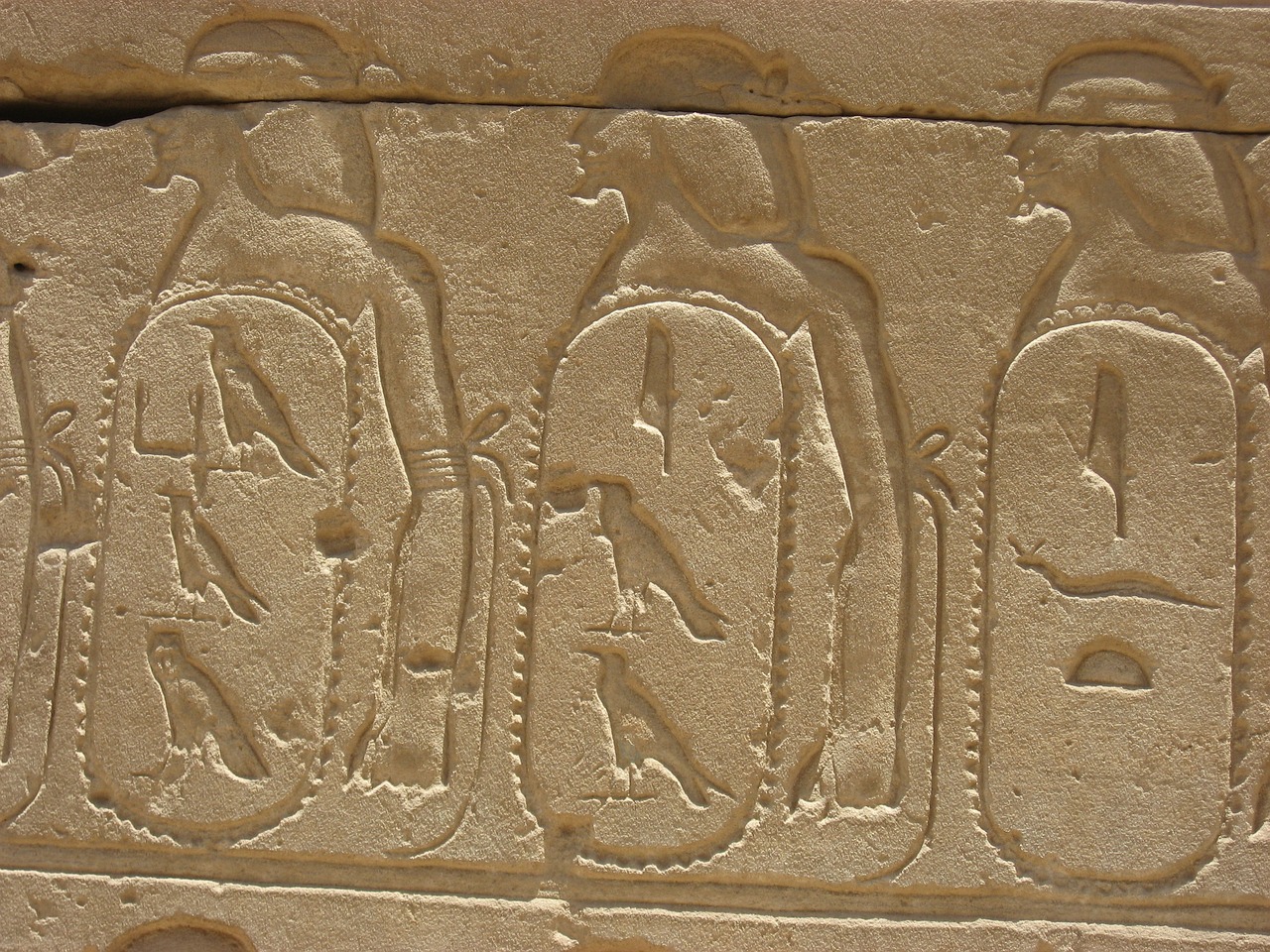
Mysteries and Enigmas of Egyptian Philosophical Texts
Exploring the mysteries and enigmas of Egyptian philosophical texts is akin to embarking on a journey through a labyrinth of intricate symbols and cryptic messages. These ancient writings, often inscribed on papyri or temple walls, hold within them the wisdom and insights of a civilization shrouded in mystique.
One of the greatest challenges in deciphering Egyptian philosophical texts lies in the complexity of the symbolism employed. Hieroglyphs, the pictorial script of ancient Egypt, are not merely letters but intricate symbols that can represent ideas, objects, or sounds. Decoding these symbols requires a deep understanding of the cultural context and the nuances of Egyptian thought.
Moreover, the fragmented nature of many philosophical texts adds to the enigma. Due to the passage of time and the ravages of history, much of the original writings have been lost or damaged. Scholars are left piecing together fragments, trying to reconstruct the complete picture of ancient Egyptian philosophical thought.
Another layer of mystery surrounds the esoteric nature of Egyptian philosophy. Concepts such as the nature of the soul, the journey of the deceased through the afterlife, and the role of gods and goddesses in shaping human destiny are veiled in symbolism and allegory. Unraveling these profound teachings requires not only scholarly rigor but also a willingness to delve into the realms of metaphysics and spirituality.
Despite the challenges, the quest to decipher Egyptian philosophical texts continues to captivate scholars and enthusiasts alike. Each new discovery, each fresh interpretation, brings us closer to unlocking the secrets of a civilization that thrived along the banks of the Nile millennia ago.
Frequently Asked Questions
- What were the core beliefs of ancient Egyptian philosophy?
Ancient Egyptian philosophy was deeply rooted in beliefs about the afterlife, the concept of Ma'at (balance and order), and the worship of various gods and goddesses that represented different aspects of life and nature.
- How did symbolism play a role in Egyptian philosophical thought?
Symbolism was integral to Egyptian philosophy, with intricate symbols used to convey profound meanings about life, death, rebirth, and the interconnectedness of the universe, providing a rich tapestry of metaphorical language.
- What impact did Egyptian philosophy have on art and architecture?
Ancient Egyptian philosophical ideas influenced the art and architecture of the time, with creations reflecting spiritual and metaphysical beliefs, showcasing a harmonious blend of aesthetics and deep philosophical underpinnings.
- How were Egyptian philosophy and religion interconnected?
Egyptian philosophy and religion were closely intertwined, with religious beliefs shaping philosophical thought and vice versa, creating a holistic worldview that integrated spiritual practices with philosophical inquiry.
- What is the significance of wisdom literature in Egyptian philosophy?
Wisdom literature in ancient Egyptian philosophy encompassed teachings on ethics, morality, and the pursuit of knowledge, serving as a guide for individuals seeking to lead virtuous lives and attain higher wisdom.
- How has the legacy of Egyptian philosophy influenced modern thought?
Ancient Egyptian philosophical ideas continue to resonate in modern times, impacting concepts of spirituality, ethics, and metaphysics, offering enduring insights into the human experience and the nature of existence.
- How does Egyptian philosophical thought compare to other traditions?
Comparative analysis with other philosophical traditions reveals both unique perspectives and shared themes, highlighting the diversity of philosophical thought across cultures while also showcasing universal truths that transcend boundaries.
- What challenges exist in interpreting Egyptian philosophical texts?
Deciphering Egyptian philosophical texts poses significant challenges due to their enigmatic nature and the complexities of ancient language and symbolism, leading to ongoing scholarly debates and a quest for deeper understanding.















